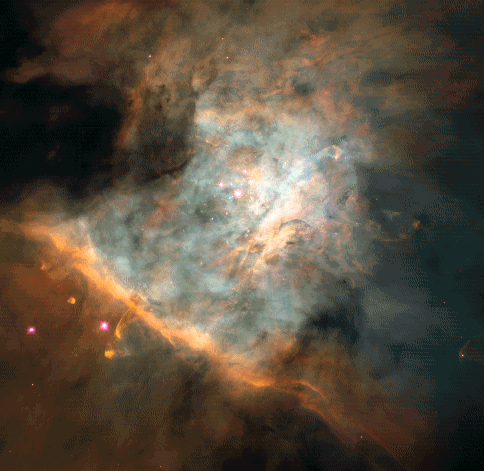
A region of star formation. Gravity pulls matter together into vast clouds of gas from which stars condense and ignite.
Today, most scientists believe that the Universe began in a Big Bang - a cataclysmic explosion that happened some 15 thousand million years ago. Back then, the whole Universe was no bigger than a single atom. It was an incredibly dense, hot place very unlike the Universe of today. Ever since then, it has been expanding and cooling. Matter has formed itself into galaxies, stars, planets, and eventually life.

A region of star formation. Gravity pulls matter together into vast clouds of gas from which stars condense and ignite.
All these forms of matter are made from just a few basic building blocks, the fundamental particles, whose behaviour is governed by four kinds of interaction.
Particle physics is the study of these basic particles of matter and the interactions at work between them. It also looks at how matter evolved in the Universe, especially in the first seconds of the Big Bang, when many of the governing features of the Universe today were established. Because particle physics research demands huge and sophisticated machines, like particle accelerators and detectors, that require many people to build and operate, it is carried out in just a few research laboratories around the world.